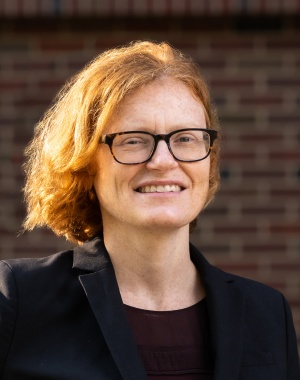Historic Crisis, Historic Opportunity
Using Evidence to Mitigate the Effects of the COVID-19 Crisis on Young Children and Early Care and Education Programs
Speaker
Miriam Calderon, U.S. Department of Education, Philip Fisher, University of Oregon, Christina J. Weiland, University of Michigan, and Erica Greenberg, Urban InstituteDate & time
Location
This is a Virtual Event.The COVID-19 crisis has brought unprecedented challenges for young children, families, early educators, and early care and education (ECE) programs. Researchers across the country have completed more than 300 studies and counting to capture these challenges. Scholars at the Urban Institute, the University of Michigan, the University of Virginia, the University of California, Los Angeles, and seven other universities and research organizations conducted a review and synthesis of the highest-quality studies to understand how the pandemic has affected young children's educational experiences and learning outcomes, ECE programs, and the ECE workforce.
Join the Urban Institute and the University of Michigan's Gerald R. Ford School of Public Policy for a virtual discussion of the findings from the synthesis and evidence-based, equity-centered policy solutions to address key issues, as well as a conversation about how the American Rescue Plan can expand access to high-quality ECE programs and address the numerous gaps highlighted by the pandemic.
From the speakers' bios
Miriam Calderon is the Deputy Assistant Secretary for Early Learning at the U.S. Department of Education. In 2017, she was appointed by Oregon Governor Kate Brown to serve as the state's early learning system director. She previously served in the Obama-Biden Administration advising on early learning policy at the U.S. Department of Health and Human Services and the Domestic Policy Council. Calderon has a diverse set of experience in the early childhood field in program, policy, and advocacy. She worked as the senior director for early childhood at the Bainum Family Foundation, as director of Early childhood education at the District of Columbia Public Schools, and as associate director for education policy at the National Council of La Raza (now UnidosUS). She began her career in early childhood working in Head Start.
Philip Fisher is the Philip H. Knight Chair and Professor of Psychology at the University of Oregon. His research focuses on developing and evaluating early childhood interventions in socially and economically marginalized communities, and on translating scientific knowledge regarding healthy development under conditions of adversity for use in social policy and programs. Dr. Fisher is particularly interested in the effects of early stressful experiences on children's neurobiological and psychological development, and in prevention and treatment programs for improving maltreated children's functioning in areas such as attachment to caregivers, relationships with peers, and functioning in school. He is also interested in the brain's plasticity in the context of therapeutic interventions.
Christina J. Weiland is an associate professor at the University of Michigan's School of Education, with a courtesy appointment at the Gerald R. Ford School of Public Policy and affiliations with the Educational Studies department, the Combined Program in Psychology and Education program, and the Ford School's Education Policy Initiative. Dr. Weiland’s research focuses on the effects of early childhood interventions and public policies on children’s development, especially on children from low-income families. She is particularly interested in the active ingredients that drive children’s gains in successful, at-scale public preschool programs. She is also interested in quantitative research methods, educational measurement, and developmental processes research. Her work is also characterized by strong, long-standing research collaborations with practitioners, particularly the Boston Public Schools Department of Early Childhood.
Erica Greenberg is a senior research associate in the Center on Education Data and Policy at the Urban Institute. Her research spans early childhood and K–12 education, focusing on programs and policies like public prekindergarten, Head Start, child care subsidies, and home visiting. She also investigates the causes, consequences, and measurement of educational inequality. She has a PhD in education policy from Stanford University.
Dr. Greenberg’s recent projects assess quality, access, and funding at federal, state, and local levels. She leads studies of public preschool expansion and early childhood program participation among low-income immigrant families. In K–12, she is conducting new work on measures of student poverty and links between public investments and children’s educational outcomes. She has experience with quantitative and qualitative methods and complex data collection and analysis.

